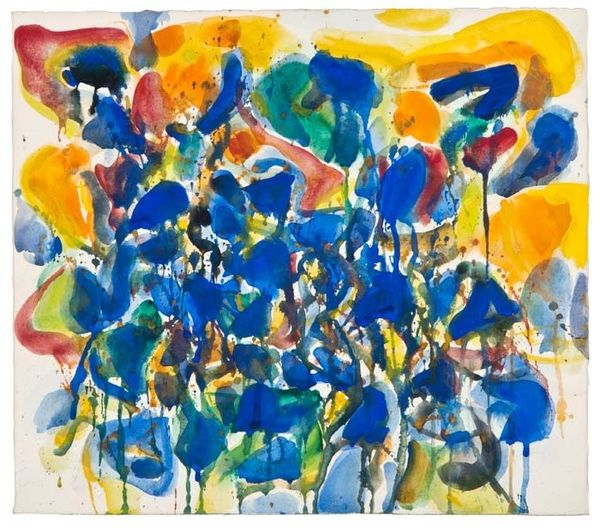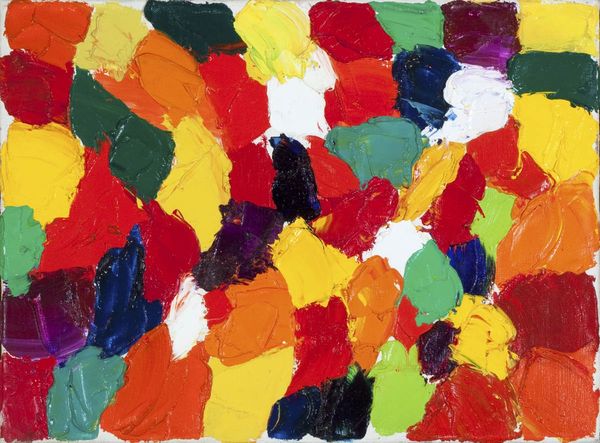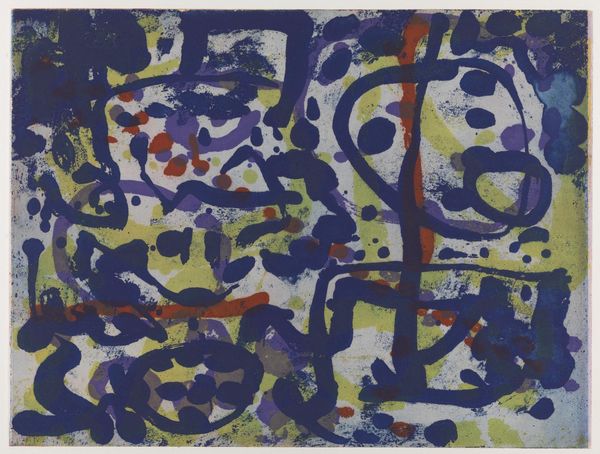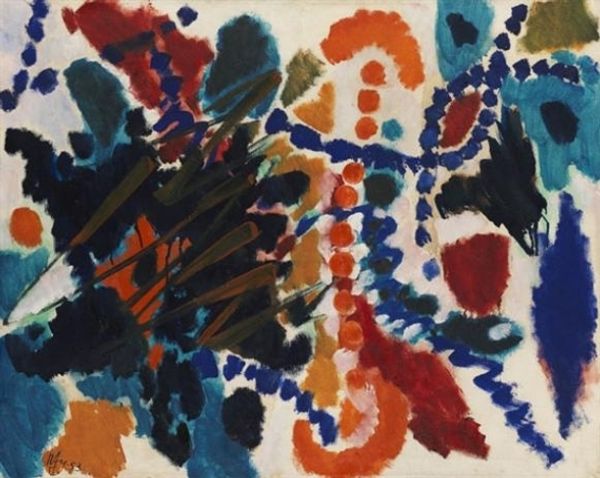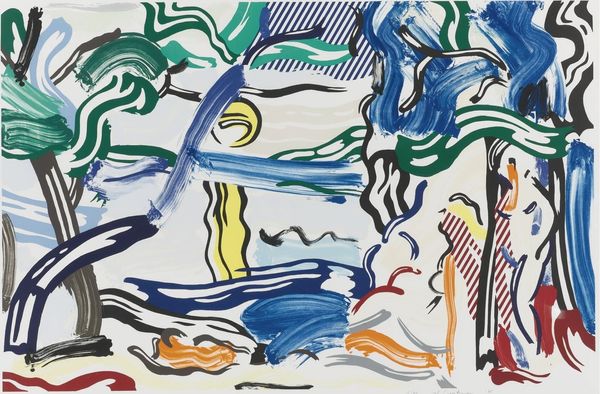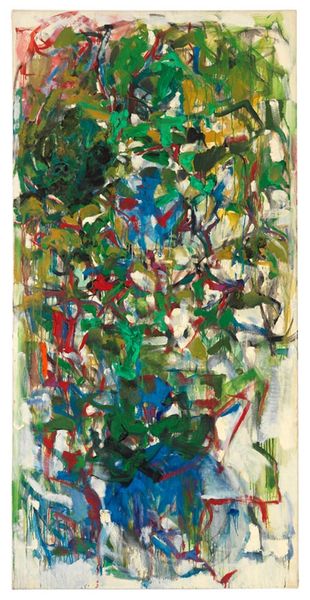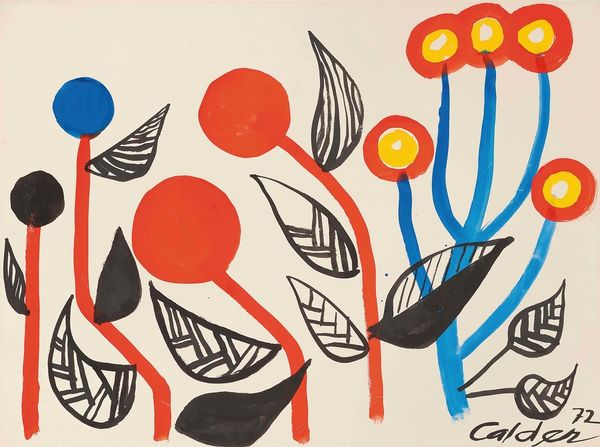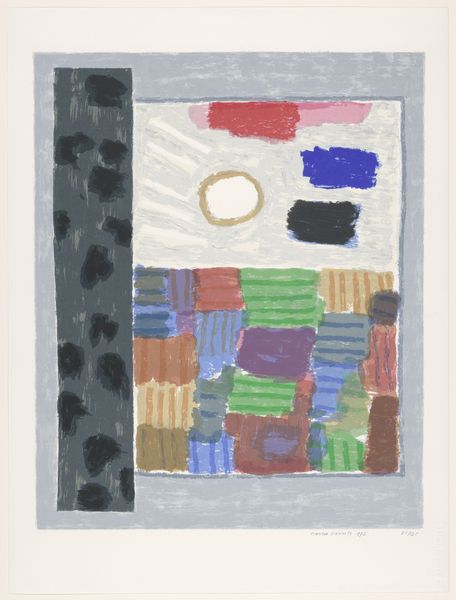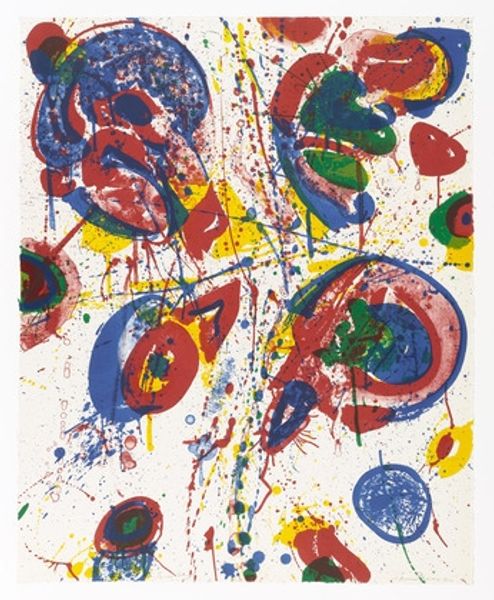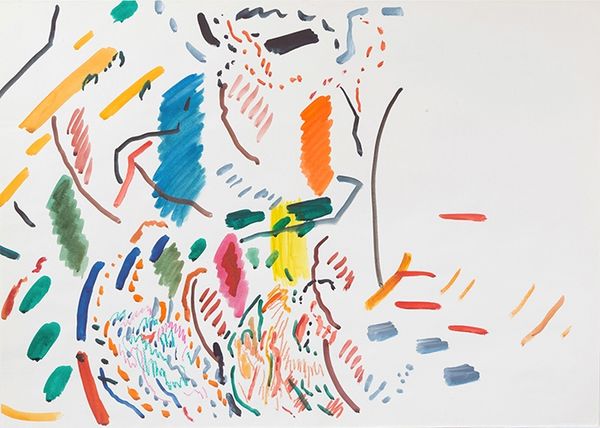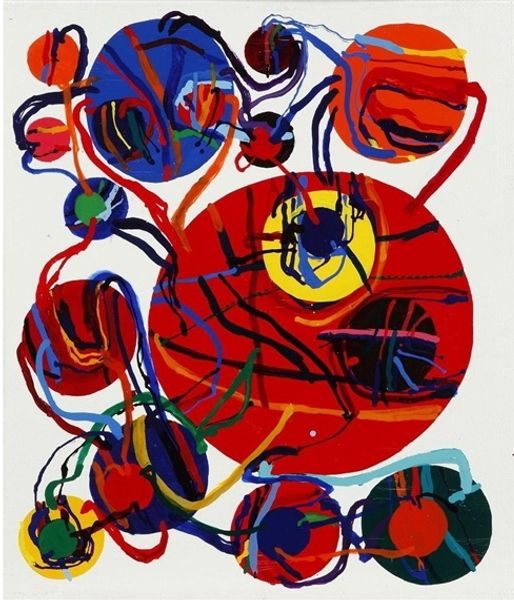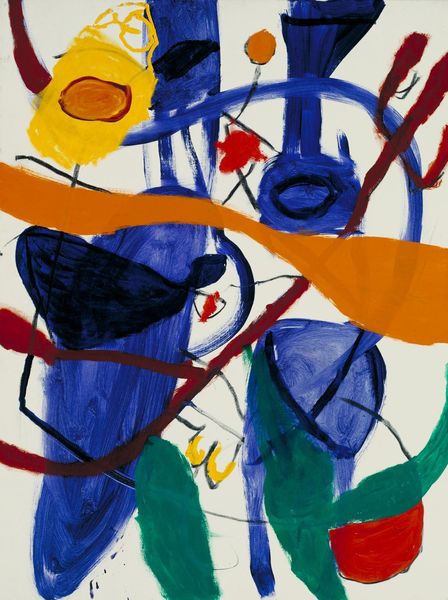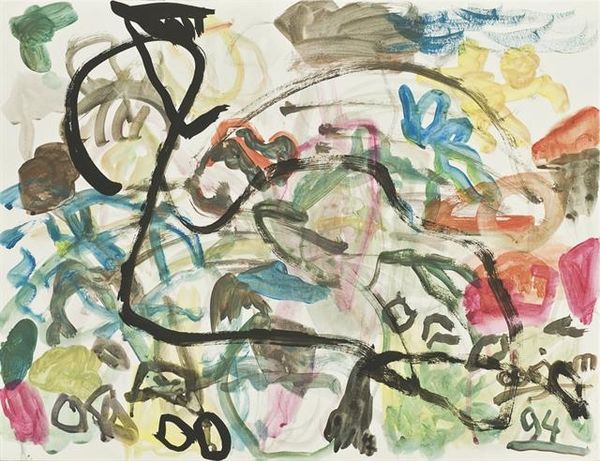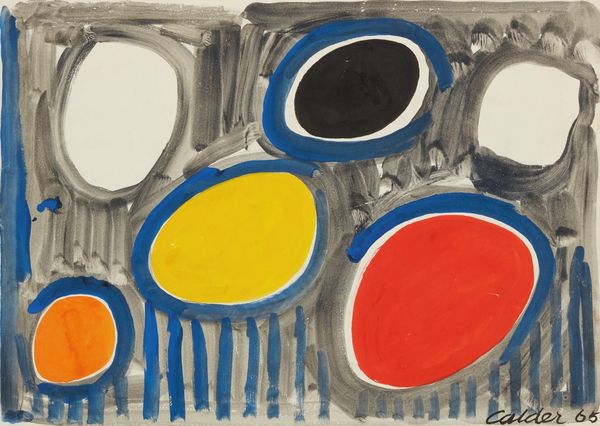
Dimensions: frame: 545 x 615 x 20 mm image: 360 x 440 mm
Copyright: © Roger Hilton. All Rights Reserved, DACS 2014 | CC-BY-NC-ND 4.0 DEED, Photo: Tate
Curator: Roger Hilton's "Foliage with Orange Caterpillar," currently residing in the Tate Collections, presents an intriguing tableau. What's your initial reaction? Editor: Chaos, almost childlike in its application. But there's a simmering energy—primordial even—in those primary colors. Curator: Indeed. The raw canvas, the visible brushstrokes—it speaks to a direct engagement with materials, a rejection of polished refinement. Editor: And the caterpillar itself, barely discernible. Is it a symbol of transformation, of potential hidden within the foliage? Curator: Possibly. Or perhaps it's about the act of seeing, the labor of uncovering meaning from the seemingly disordered. Editor: The vibrant palette certainly draws the eye, a visual feast hinting at deeper narratives of growth and decay. Curator: Hilton was undeniably interested in exploring the tensions between abstraction and representation in the production of art. Editor: A fascinating dance between instinct and intention then. I appreciate your insights! Curator: And I, yours. A work that reminds us of the beauty inherent in the imperfect and the handmade.
Comments
tate 10 months ago
⋮
http://www.tate.org.uk/art/artworks/hilton-foliage-with-orange-caterpillar-t11747
Join the conversation
Join millions of artists and users on Artera today and experience the ultimate creative platform.
tate 10 months ago
⋮
Foliage with Orange Caterpillar was painted in Roger Hilton’s final years, a prolific period when the artist worked exclusively in gouache and drawings. The painting depicts an orange caterpillar at the centre of the composition, surrounded by a dense collection of petal-like shapes, bright pointillage and striped colour. Gouache paint is thickly applied in orange, red, yellow, beige, grey-green and shades of blue and green. The coils of charcoal drawing underneath the paint convey the speed of its execution. Writing in the Sunday Telegraph on 16 January 1966, E. Mullins compared Hilton’s late work to ‘matches struck and tossed away’ (quoted in Lewis, p.150).
